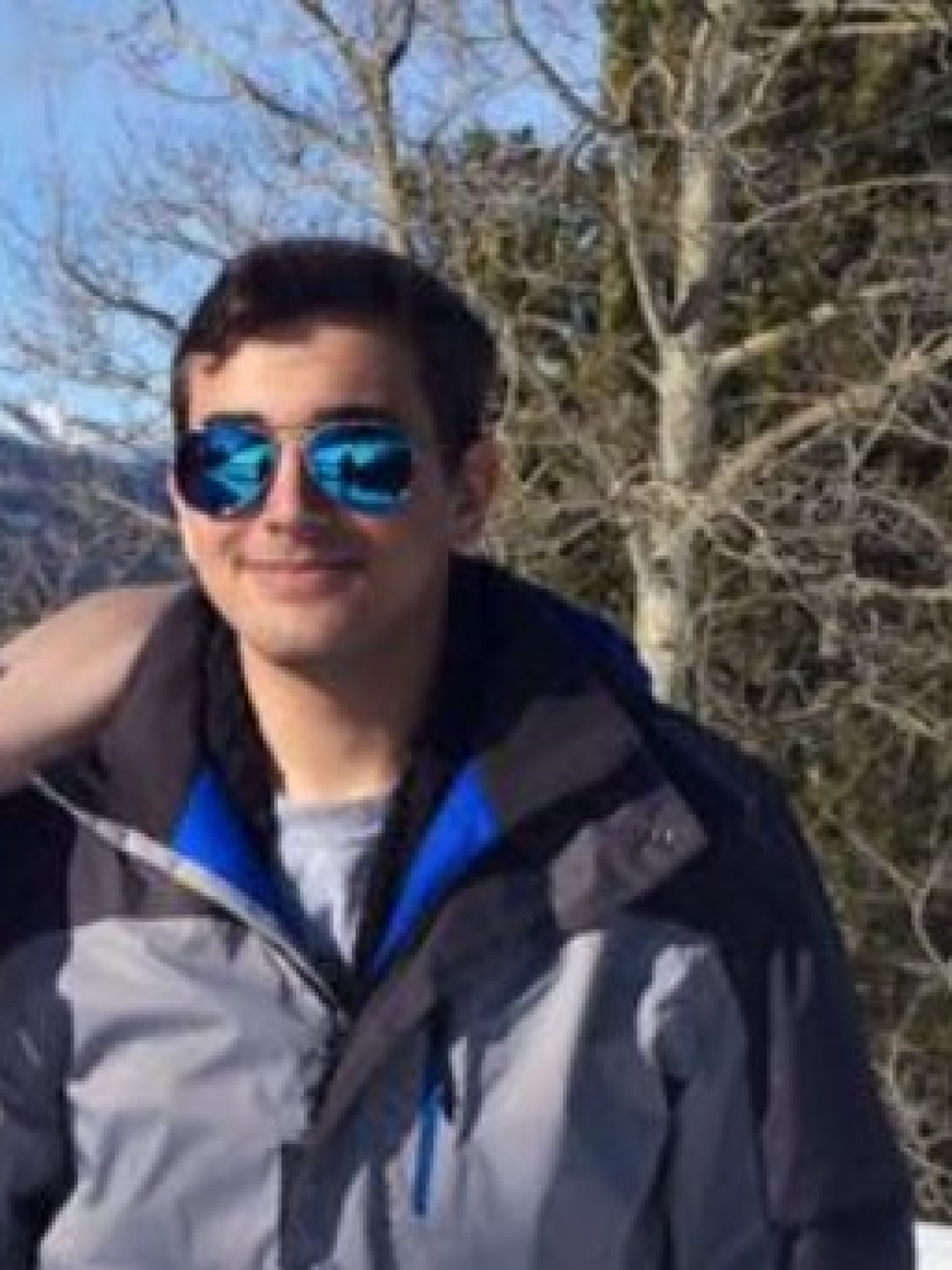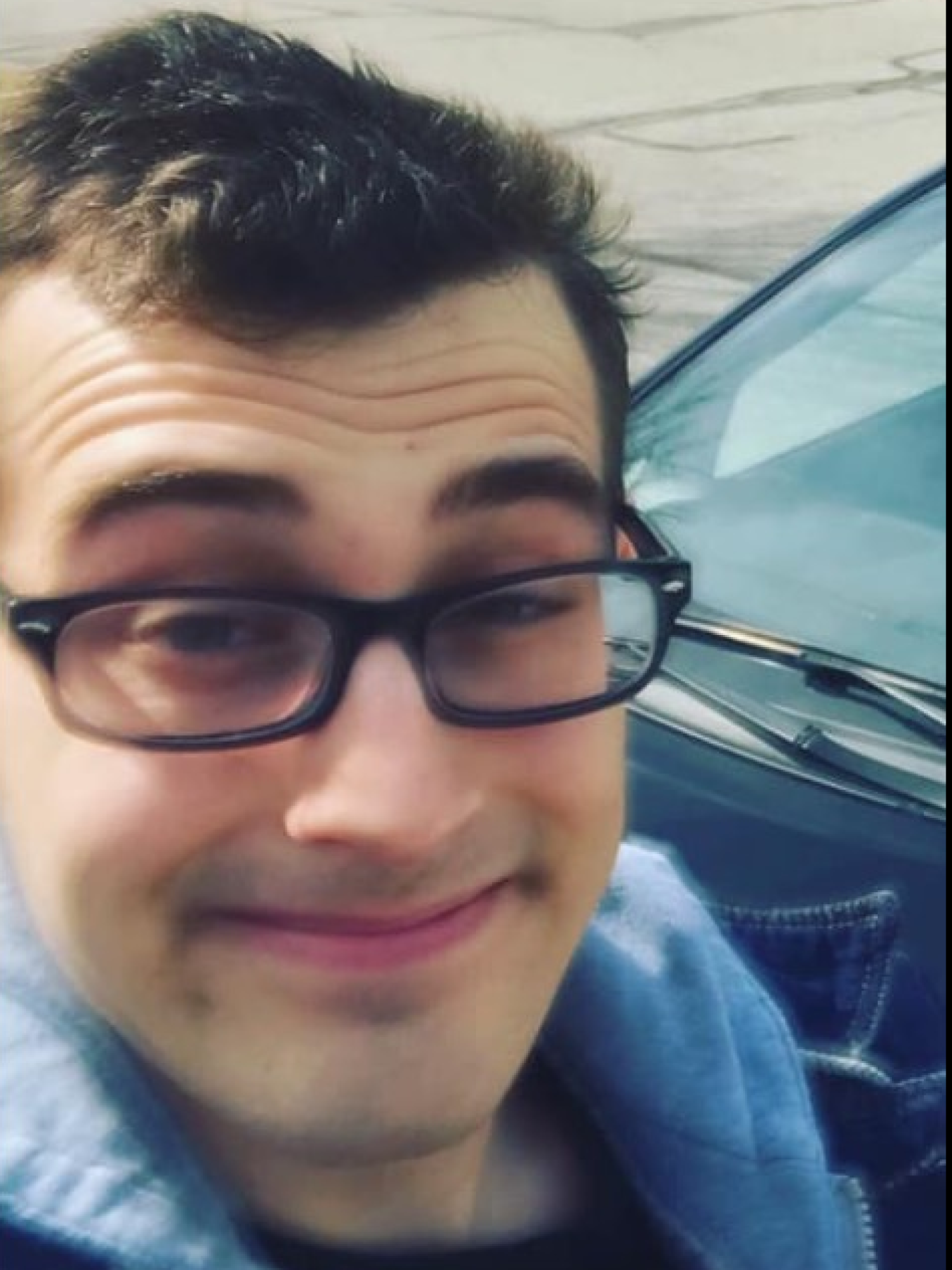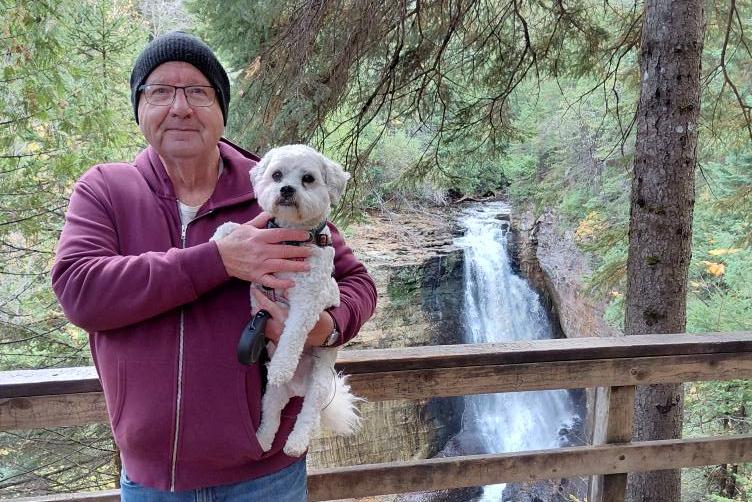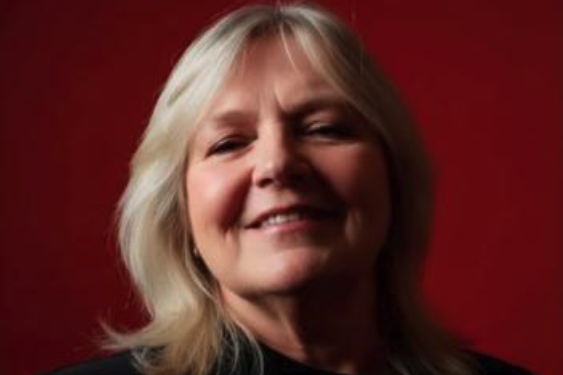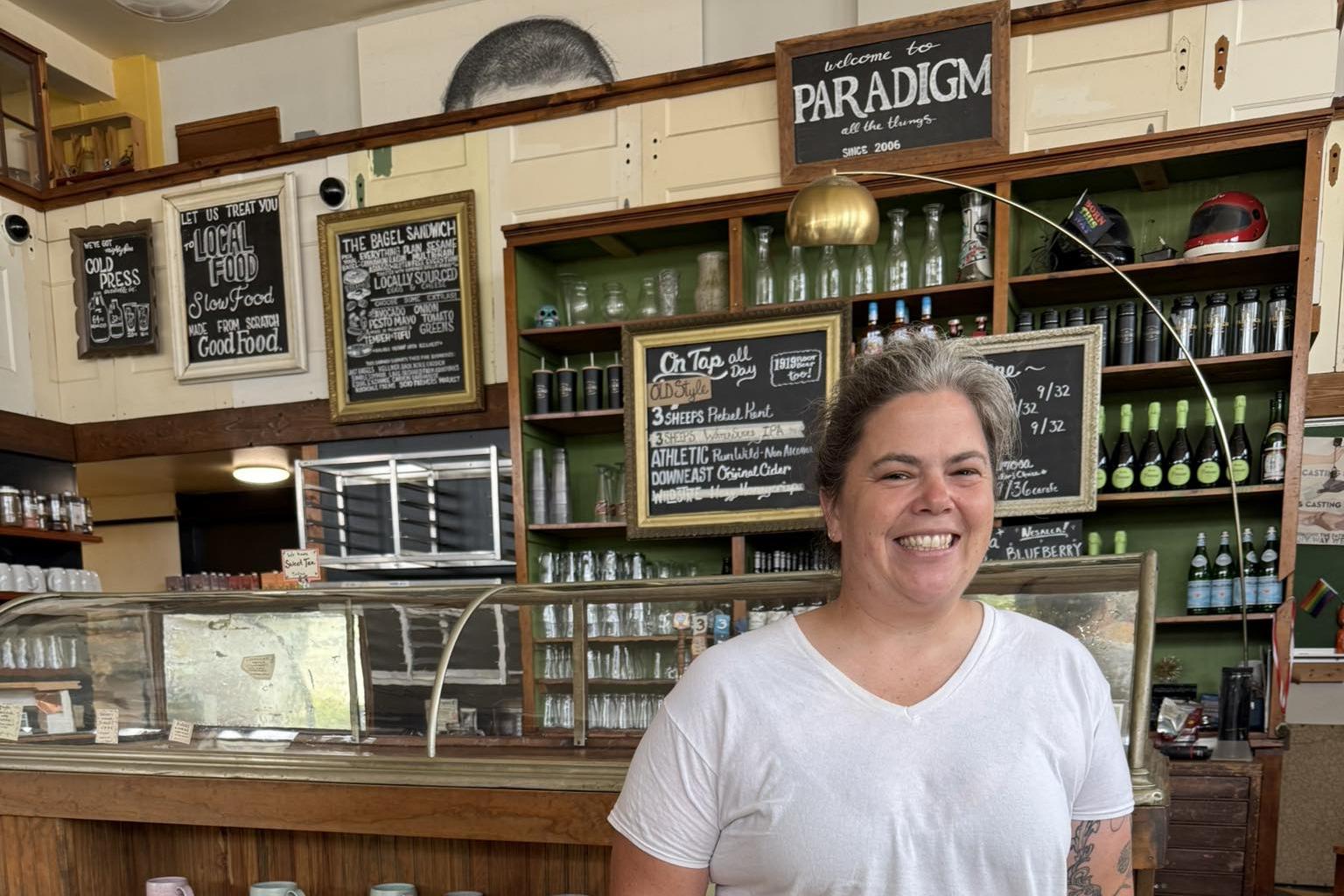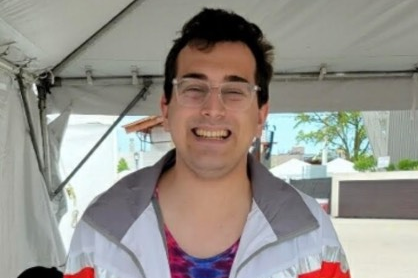
Evan Kind: leading bisexual acceptance, alliance, and activism

"I am often one of very few other bi men in the room -- and I want to be holding space for others like me."
Evan Kind was born in Madison, Wisconsin, in 1995. He credits the vibrant city, nestled between two beautiful lakes, as having played a significant role in shaping his identity. Growing up in this area, he was surrounded by a rich tapestry of culture, education, and nature. Madison is home to the University of Wisconsin, which injects a youthful energy into the community and makes it a center for innovation and creativity.
Evan’s childhood was marked by an eclectic mix of experiences that fostered curiosity, a passion for social justice, and a love for learning. Blessed with a loving and supportive home life, Evan also had the advantage of a liberal community and a high school, Madison East, which valued diversity. While Evan was not officially out as bisexual during his high school years, he had the benefit of knowing many queer, trans, and nonbinary students, and this shaped an accepting worldview.
Madison was also about the values imparted by Evan’s family and community. The emphasis on education, social justice, and civic engagement was prevalent throughout his formative years. He was also inspired by the activism that the city is known for.
Evan’s family has been supportive of his bisexual identity. While his mom had some concerns regarding the discrimination Evan might face due to societal attitudes toward the queer community. She and Evan’s dad, and the majority of his large extended family, have been affirming and encouraging.
During Evan’s high school years, like many young Queer people, he thought of himself as straight but as an ally to the LGBTQ community. There were fellow students who were active in the Gay Straight Alliance and who identified as queer, and Evan saw himself as supportive of them.
Madison East was an affirming environment for diversity, but he had not come out to himself at that point. Being involved in theater also exposed Evan to some folks who were openly queer. Those who were open would sometimes experience social pushback and some of the usual negativity that can be experienced in a high school setting.
Even though Madison is thought of as a liberal bastion, the high schools still have pressure to succeed and compete, and Madison East was no stranger to that.
“I remember one time I was volunteering, and the Supreme Court decision regarding marriage equality had just happened, and a couple had gotten married just the prior Saturday. It was so wonderful to be a witness to that joy.”
Evan carries the positive intergenerational experience with him to this day. It seemed as though society was moving in a very positive direction for queer people, and Evan feels this made him more confident as he was moving from questioning his identity to being authentically out and proud as a bisexual man.
Evan’s post-college life has been marked by both urban and rural experiences. He graduated with a degree in architecture from the University of Wisconsin-Milwaukee.
Shortly thereafter, he made a move to the Appleton area to start his post-college career path. By this time, he was out to himself and his family and fully acknowledged his bisexual identity.
It was in Appleton that Evan went to his first gay bar. Rascals had a community vibe which appealed to Evan as they would host fundraisers, and he remembers they would do an “Angel Christmas Tree” event which benefited families who were affected by AIDS.
Evan began to gain an understanding of rural queer culture as he met more people in Appleton and the surrounding areas and attended events in the Fox Cities. He found that bar culture was very meaningful for many of his queer friends and that the chosen family they found there was very important, as they were not well supported by many of their families.
ReMixx was another hangout for Evan and his friends.
“Just to give you a little color and commentary, ReMixx was a big shed of a bar, surrounded by an automotive shop. It was kind of in the middle of nowhere.”
This bar had the all-important dance floor and was cherished by the younger queers in the area for that reason.
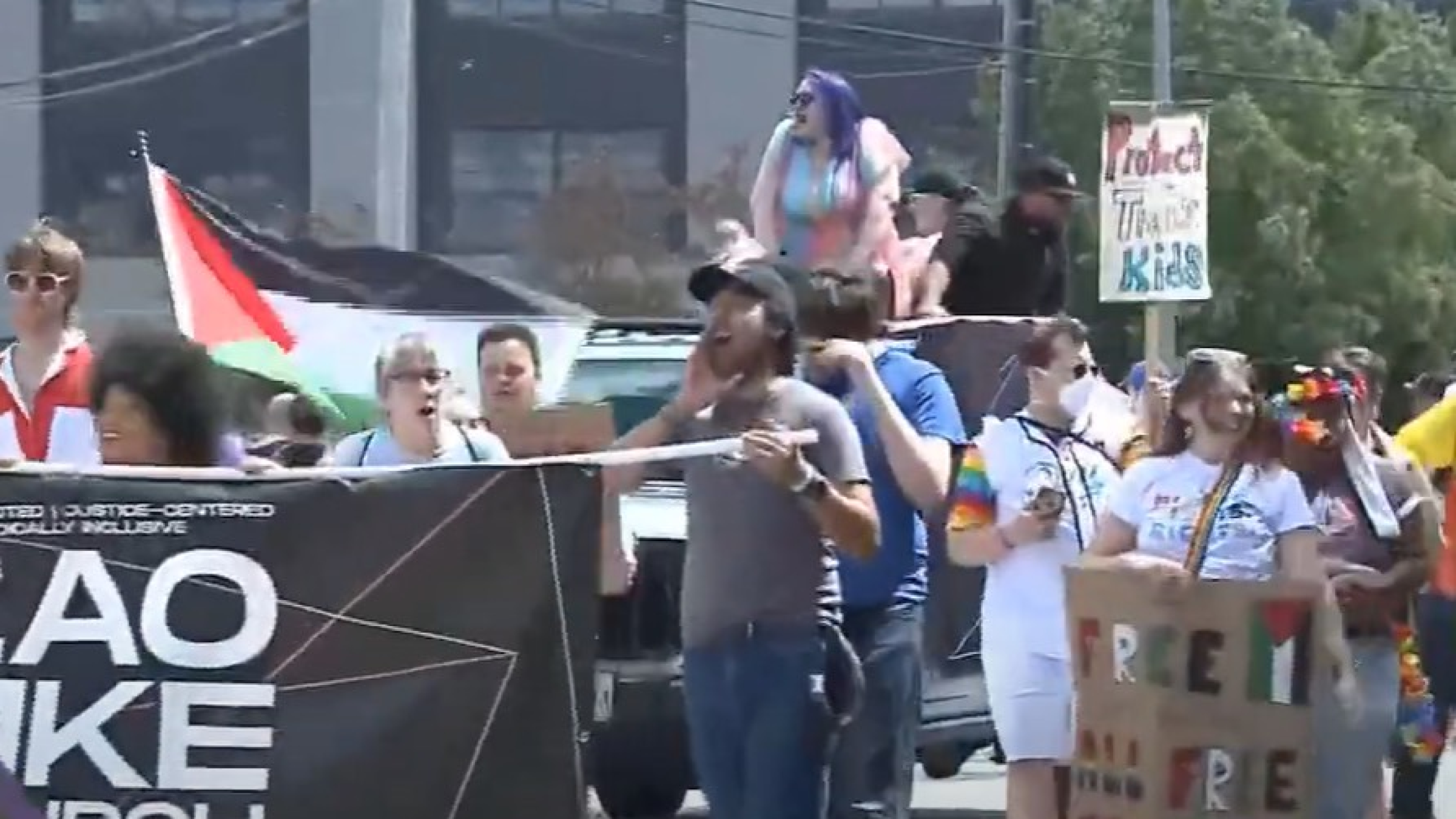 Evan Kind
Evan Kind
As Evan reflects on the first few years he was out, he sees that it felt like a time when the LGBTQ community was becoming more supported.
He deeply appreciated the way the Obama administration seemed to show significant support for concerns of the queer community. It felt like a time of confidence and increased visibility for all queer folks, including our transgender family. He indicates he was glad to have had that experience before the rampant discrimination, which is being actively supported by the Trump White House.
The strength and toughness Evan has experienced give him hope for the future as the community deals with increased and heightened negativity.
“It was just great to see these older gay men, lesbians, and others who were maintaining friendships and having fun.”
During Evan’s time in Appleton, he was also seeking a church to join, as maintaining a connection to a Christian, spiritual community is of significant importance to him. He was seeking a community of faith where he felt accepted and affirmed.
That faith home was the Angels of Hope Metropolitan Church. While the congregation was small, it was a group of very well-adjusted, happy, older (primarily) gay men who had lived through difficult times such as the AIDS epidemic and were confident in their identity.
Evan found it wonderful to see how warmly they related to each other, their partners, and their communities, and not only had survived but were thriving. Evan found it very positive to see this community that was focused on their spiritual and day-to-day needs and committed to living positive Christian lives. Resources and connections were generously given, and Evan felt as though this was a very formative experience for him.
Evan eventually returned to the Milwaukee area and settled in Merrill Park. He is an active leadership team member of the Merrill Park Neighbors and loves the opportunity to make positive change in his neighborhood. He continues to enjoy D&D gaming and is an avid fan of Dr Who and participates in a Dr Who-related organization.
He has also continued queer activism as a volunteer with Bi+ Pride Milwaukee. He leads Bi Hiking in various Milwaukee area parks, nature preserves, and green spaces. He also enjoys reading bi-focused books and participating in the Bi+ Book Club, most recently reading Bisexual Men Exist.
Evan still sees myths that negatively impact the Bi+ community. He finds it disappointing that some think bisexual men are actually gay and just have not accepted their identity. While Evan has primarily dated men, he is confident in his own authentic identity.
He has also been impacted by the idea that Bi+ individuals are cheaters, which he vehemently disagrees with. Evan deals with these challenges by holding space and holding his ground as a bisexual man and not allowing others to disrespect his identity.
He also has seen some insecurity on the part of gay men in terms of disrespect toward non-binary and trans men. He sees this as possibly indicative of some insecurity and anxiety about their own sexuality.
Being active in the community is something that has helped Evan feel seen and valued. It has been very affirming for him.
“I would definitely say that being in community with people who have shared interests or shared values, especially as it relates to being more comfortable with my identity, has been helpful.”
Evan would definitely like to see more visibility for bi+ men.
“I think that, as a bi man, showing up in gay spaces has been very important to me, because I am often one of very few other bi men in the room and I want to be holding space for others who identify as I do.”
He hopes that by being in community with other bi+ men that they will feel more validated and more welcomed in queer spaces. When asked what he is most proud of at this point in his life, Evan had a succinct response.
“I am proud of being active in Bi+ Pride Milwaukee. I get a lot out of being in community with fellow bi+ people and hopefully, holding space and building community infrastructure that will help be a resource for bi+ people that come out in the future, relocate to Milwaukee, or even are trying to start their own bi+ orgs in more rural and exurban spaces that need them. We hear locally about the Boston and Chicago bi+ groups, and hopefully our activity and work help to inspire and provide resources for other Bi groups that need the validation that bi+ groups exist and flourish elsewhere.”
As far as concerns for the future of the LGBTQ community, Evan had this to say:
“I definitely think we are coming into a time of more insecurity and harmful circumstances for queer people generally. We live in a time where the president and Supreme Court feel no fealty towards protecting marginalized groups, and that is resulting in more downstream violence and oppression towards queer people on an everyday scale. And even though trans people have always existed, because conservatives feel they can more easily de-legitimize their rights and legal protections than cis queer people, trans people are experiencing these everyday microaggressions and violence even more acutely.”
Evan would like to see more energy going towards protecting trans people now because conservative groups are targeting them and have said implicitly that they want to remove their access to gender affirming care. These conservatives know that trans people who need gender affirming care and want to medically transition will experience a really bad mental health crisis if they are forced to medically de-transition because state or federal judicial decisions restrict and remove their access to gender affirming care.
He sees this time as critical for cis people, queer and straight, to stand up and support their trans siblings. As a community organizer through his neighborhood group, he hopes that more interpersonal and on-the-ground resources help better the quality of life for trans people as their rights are being attacked throughout this administration.
Evan often thinks of the time he spent as a questioning 19-year-old. His advice is to be in community physically with other queer people. He sees this as not just important to validate your own queer identity, but also to learn more about queer people that you share some lived experience with, but also differ from. Evan suggests that this time spent, in person, would help to break down stereotypes and understand other queer people as both complex but also living, breathing people.
Looking forward, Evan sees some rocky times ahead. However, he also has a historical perspective that rights are usually hard fought and hard won. He understands how long the LGBTQ community has had to fight for the positive changes seen in this century.
"So as hard as it is to stomach, I told my friends that as leftists we are going to need to accept that real positive change in our communities may very well take years to accomplish anything. We may very well experience years of being metaphorically kicked in the face, but bad legal decisions that restrict our rights and lessen our quality of life."
"The previous generations behind us all had to measure their success in years, if not decades, for positive change like marriage equality. And we can either resign ourselves to losing our rights as they are eroded by conservatives, or we can do what we can to fight little by little, continue to show up for the causes we believe in and hopefully our actions will create a positive change for future generations.”
Evan Kind is a person with a long view for the queer community. He sees the challenges arrayed before us and is willing to put in the work, work he has seen earlier generations do, to guarantee a bright and positive future.
“I want legal protections for marginalized people now. But at the same time, I take the 40-hour work week and paid medical leave and even workplace protections for parents so they don't lose their job for medical leave for granted. And those were also rights that people fought for over the years, and I get the privilege to take for granted."
"So if older people were able to fight for these rights I take for granted, hopefully my actions help younger people I may never meet take for granted rights that they should never have had to fight for."
"I want to do what I can to protect people from marginalized groups.”
recent blog posts
January 17, 2026 | Garth Zimmermann
January 16, 2026 | Michail Takach
January 10, 2026 | Michail Takach
The concept for this web site was envisioned by Don Schwamb in 2003, and over the next 15 years, he was the sole researcher, programmer and primary contributor, bearing all costs for hosting the web site personally.
